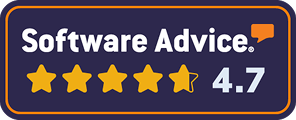It can be overwhelming to transition from being a student to a full time working professional. From the hours of work to multi-tasking many responsibilities, it can be very difficult to find your footing in the real workplace. With professional demands, working with more senior staff members and translating all your theoretical knowledge into practical skills, you may feel burnt out within the first few weeks of your first job.
Why is the transition from university to the workplace difficult?
A research study by Andy Molinsky showed that 54% of recent university graduates felt disoriented, confused and dissatisfied when transitioning from their college life to the workplace. According to the study, three main challenges are faced during the cultural transition from academia to the workplace:
- Feedback – While you have received clear and detailed feedback after working on university assignments and coursework, the professional space may not provide the same. You may experience a ‘feedback vacuum’ as your feedback from supervisors and team members may not be consistent or easy to action.
- Relationships – University life was full of people around your age group but you will meet different people at different stages of their life in the workplace. It’s important to make friendships but also surround yourself with coworkers who will guide, mentor and drive you to achieve your goals.
- Accountability – As students in university, there wasn’t anything at stake. If you were to do well, you would pass the courses and the exams but scraping through was good enough. In the workplace, your performance has a direct impact on your review and whether or not you would be able to keep your job. You have to answer to superiors and are accountable to the team and the clients. This level of responsibility can be overwhelming when transitioning into the workplace.
A research study by Andy Molinsky showed that 54% of recent university graduates felt disoriented, confused and dissatisfied when transitioning from their college life to the workplace.
How to transition from university to the workplace?

Here are some tips from experts and best practices to help transition from an academic school setting to the workplace:
- Understand that your social schedule will be different – Having a full time job means that you’re going to have packed days with 8+ hours spent on office work. This means that you may not be able to meet your friends and have late night outs, it could be stressful trying to balance both work and a social life. It’s best to understand this early on and not try to juggle both which could lead to distractions while at work.
- Learn to be efficient at your role – At the workplace, you will be expected to pick up the tasks assigned to you and complete them with minimal supervision. You will need to start learning and finding ways to be efficient at your role. Tap into productivity tools and test methods to become faster, sharper and effective at every piece of work assigned to you. It’s imperative that you perform extremely well at your first job as it sets the course for your career.
- Ask questions and be open to learn from others – As a newbie to the workplace, be open to learning from co-workers and senior staff who have been with the organization for a longer period of time. From technical tasks to general company policies and culture, ask questions and do not work based on assumptions. Often, when assigned work, you may feel overwhelmed when you don’t necessarily know how to complete a task. It is however, important to learn and not be asking the same questions again. Even if you graduated from one of the best universities you still have to remain motivated and be ready to hustle! Here are some productivity tools for work from home.
- Inculcate healthy habits – With a new job and many new responsibilities, it can be easy to slump into unhealthy patterns with long hours of work and lack of social interactions. Your lifestyle will need to change in order to keep a work-life balance. Inculcate healthy habits by eating nutritious food, setting boundaries for a work, exercising regularly and sleeping well.
Tap into productivity tools and test methods to become faster, sharper and effective at every piece of work assigned to you.
Tap into productivity tools and test methods to become faster, sharper and effective at every piece of work assigned to you.
- Perfect your soft skills – Improve and work towards perfecting your soft skills, motivation, attitude, manners, decisiveness, problem solving are all integral to your success within an organization. Learn the generally accepted practices from the company’s culture and based on your interaction with peers. To improve your soft skills you can further familiarize yourself with how to write great emails and etiquette when speaking on the phone or in person, this is especially important if you have a client facing role. Use the top 7 tips to build relationships remotely.
- Gather industry knowledge and news – If you enjoy your job and want to potentially continue working in the same industry, gather knowledge and keep learning about all the changes and emerging trends. You may want to sign up to SME blogs, newsletters and webinars to learn from experts. Follow subject matter experts on social channels to constantly stay abreast with everything happening in the industry. Additionally, to improve your soft skills you could do free courses or get a professional certification to enhance your knowledge and grow.
Improve and work towards perfecting your interpersonal skills: motivation, attitude, manners, and decisiveness, problem solving are all integral to your success within an organization.
- Network with peers and find mentors – As a young professional, building a network will be an asset for you at every step of your career. Make time to build connections and grow your network by interacting with co-workers within the company. Virtual coffees and networking events are also good opportunities to meet new people and grow your network. Joining LinkedIn or Slack groups will help to meet professionals who are working in the same industry. It is imperative that you find mentors who can help guide you through the early years of your career, it could be a senior or industry professional with a few years of experience under their belt.
At Qureos, we believe that mentorship is extremely important and we always assign mentors who will nurture young professionals like yourself.
As a young professional, Make time to build connections and grow your network by interacting with co-workers within the company and build relationships with other industry professionals.
- Manage your time, responsibilities and budget – For the very first time, you are on your own and having to manage all the various aspects of your life. Plan your day in advance and set time slots to complete different chunks of work to stay on track with your weekly and monthly goals. It is also important to create a personal budget and manage your finances. Divide your paycheck into different categories using the 50/30/20 approach (Fixed expenses/necessities, wants/leisure expenses and savings). Using a planner like Mint to set you financial goals will help reduce the stress of running out of money after the first few weeks.
It’s important to understand that your first job is not going to be your last job. Even if you don’t necessarily like the work, Use the opportunity to learn and hit the ground running with the first job. From time and task management to communication and other technical skills, gather experience and knowledge from your seniors and coworkers. In the meantime, you could also start building your network and connecting with recruiters to find a position that is of interest to you.
How can Qureos help?
Qureos can help you connect with liked-minded learners from all over the world, acquire practical hands on skills through industry professional-led sessions and gain work experience by collaborating with corporates while building your portfolio. Whether you’re a new graduate starting out at your first job or a university student, Qureos can help you upskill and learn how to be successful in the workplace. If you would like to learn more about Qureos, reach out to us or check out our social networks.













